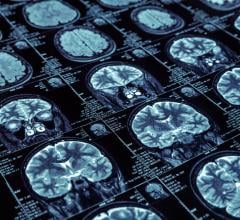
April 27, 2016 — Patterns of brain activity thought to show pain responses have been called into question after researchers saw such patterns in rare patients born without a sense of pain.
The study — conducted at University College London (UCL) and the University of Reading, published in JAMA Neurology, and funded by the Medical Research Council and European Commission — was designed to test the 'pain matrix'. This is a pattern of brain activity that has been so consistently observed in almost every neuroimaging study of pain in humans that it is often considered a marker for pain. The association is so pervasive that the pain matrix has been used in research to suggest that social rejection or mental effort can cause pain.
To test whether this pattern actually represents the sense of pain, researchers used functional magnetic resonance imaging (fMRI) to measure brain activity in two rare individuals born without the ability to feel pain and four age-matched healthy volunteers. They were exposed to painful 'pinprick' stimuli while their brain activity was measured.
The people with no sense of pain showed the same pattern of brain activity as the healthy volunteers, casting doubt on the theory that this pattern represents pain.
"Our results suggest that these patterns are not in fact 'pain responses' but responses to attention-grabbing sensory stimuli regardless of whether a person feels pain," explained lead author Tim Salomons, Ph.D., University of Reading. "By testing people with no sense of pain, we can categorically rule out that these are pain-specific responses. These people still retain all other senses including non-painful touch, so the brain activity that has been dubbed the 'pain matrix' is likely to represent these senses rather than actual pain."
The findings highlight the need to be cautious when interpreting observed associations between brain activity and human experiences.
"Every science student knows that correlation does not imply causation, and we should not forget this when interpreting brain scans," said senior author Prof. John Wood, Ph.D., UCL Medicine. "Although correlations between pain and brain activity have repeatedly been made, a causal relationship between neuronal activity and pain sensation has yet to be established. Just like a sense of beauty or happiness, the precise location of pain sensation in the brain remains elusive for now. It would be therefore misguided to use brain scans to inform diagnosis or drug discovery relating to pain management. In order to understand how our brains give rise to the sense of pain, human brain imaging will need to be supplemented by research in animals where individual cells can be modified and measured."
For more information: www.archneur.jamanetwork.com


 July 25, 2024
July 25, 2024 








